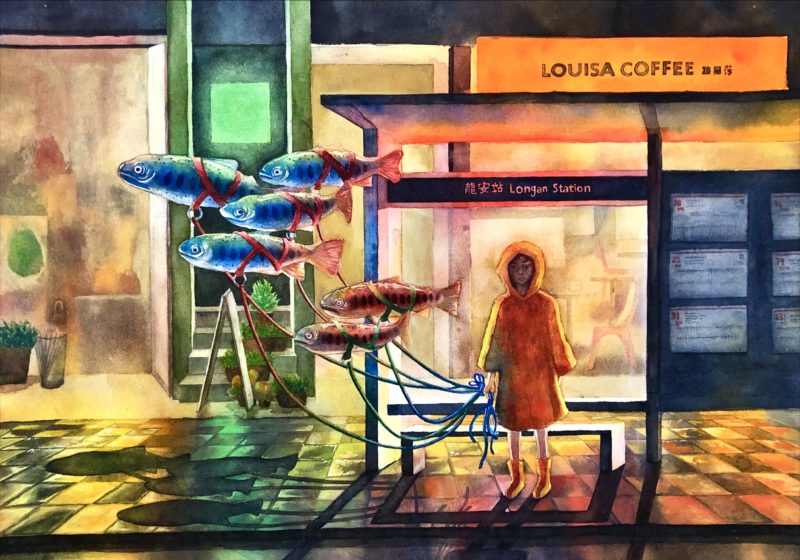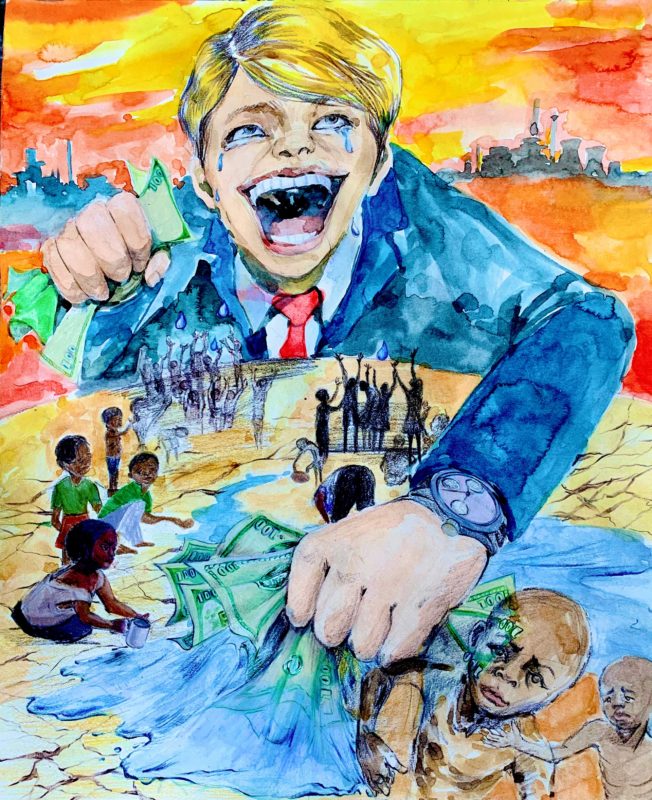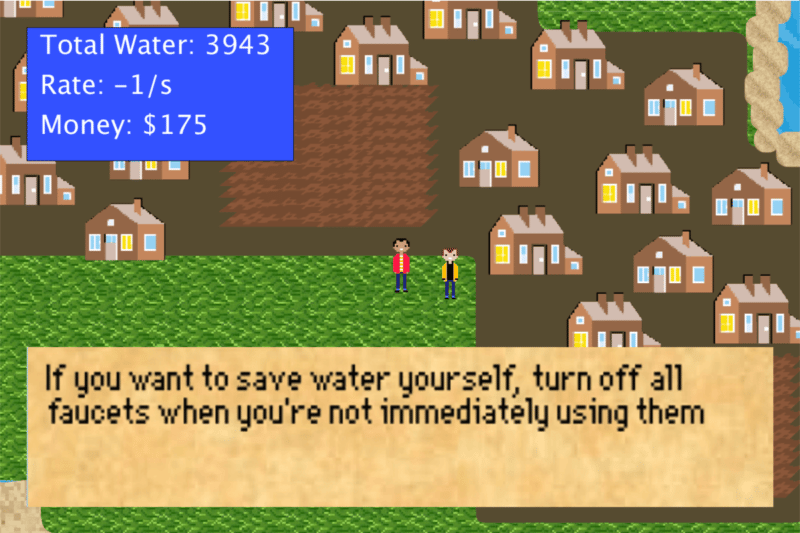
What the Duck is So Funny About the Climate Crisis?
February 8, 2022Netflix recently released Don’t Look Up, a humorous, urgent, and sobering film about climate change—thinly veiled as an apocalyptic asteroid. We laughed at how ridiculous it was. We cried at how relatable it was. And we talked about it—a lot.
As Adam McKay, the film’s director, and marine biologist Dr. Ayana Elizabeth Johnson wrote in their opinion piece in the Guardian, “…when people laugh together it gives them perspective, relief and, most of all, a semblance of community.”
That’s why the theme of our 2022 Ocean Awareness Contest is The Funny Thing About Climate Change. We’re inviting you to harness the power of humor to capture attention, break down barriers, and empower people. Still, the world of climate comedy can be difficult to wrap your head around.
In the first episode of our Deep Dive Series, Dr. Beth Osnes and Ben Stasny of Inside the Greenhouse—a project dedicated to inspiring creative communication on climate at the University of Colorado, Boulder—shared an incomplete list of what’s funny. It serves as a great jumping-off point for brainstorming fresh and humorous ideas for your 2022 Contest submissions.
Below are some creative pieces from our 2021 Contest that embody climate humor and capture the spirit of our 2022 theme by using some of the strategies on Dr. Beth Osnes and Ben Stasny’s list.
Introduce one ridiculous idea into an otherwise logical world
Waiting by Julianne Ho
Taipei, Taiwan
2021 Senior Art Bronze Award
Julianne Ho captures the magic of introducing something peculiar into her everyday life. Waiting depicts a young girl waiting in the rain for her bus, holding six endangered Formosan landlocked salmon on leashes, floating above her like balloons. We can chuckle at the absurdity of taking fish on a walk while understanding the affection and protective nature that Julianne holds for these fish, much like she would for a family pet.
Imitate and fully commit
“How to Make Your Own Water in 2050!” by Alison Chang
London, United Kingdom
2021 Senior Film Silver Award
We are all familiar with the social media influencers flooding our newsfeeds and For You Pages. That’s why it is so effective when Alison Chang parodies a YouTube tutorial titled “How to Make Your Own Water.” Even while pretending to be experiencing a water ration, Chang captures the cadence, style, and tropes of a bubbly, over-the-top vlogger purifying freshly melted ice cap water in her vintage “toilette.” Her parody makes us laugh out loud while highlighting valid concerns for the future.
Anthropomorphize ideas, forces, natural objects, animals…
The Intervention by Joyce Ahn
Gardena, California
2021 Senior Creative Writing Honorable Mention
Joyce Ahn writes from the perspective of an oak tree struggling to survive on the coast as saltwater floods its roots. Giving animals, plants, or objects human characteristics can be a great way of injecting satire into your work. In this case, Joyce gives the tree a bitter attitude towards its inland companions as a way to communicate real problems that coastal trees face.
“I’m only 98, but I know fellow oaks who have gone on for three centuries. Privileged logs. They don’t live in a coastal town, stuck in a park next door to the ocean. Their soil isn’t poisoned with salt from the seawater that floods the town.”
The tree also confronts Camila, a young girl who has spent her childhood around the tree. The tree inspires Camila to take action against sea-level rise, but not before admitting that it has been reading her diary over her shoulder.
Get absurd – Absurdism can seem more logical than logic
“PPN Network” by Yusia Xiao, Kyna Tam, Jenny Zhang, Jessica Famolare
Hong Kong
2021 Senior Film Honorable Mention
Another example of anthropomorphization, the “Puppet Pals News Network” employs a sock puppet and a kettle named Dick and Babs, respectively, to present a newscast in a post-apocalyptic world. The dialogue is light and filled with sarcasm, jokes, and heavy irony—one of the highlights is the weather report with Bob, a plastic bag with eyes that silently bobs in the water. It’s a silly concept that effectively presents information, engages the viewers, and is hard to forget.
Exaggerate
The Cost of the Rich by Cara Lee
Las Vegas, Nevada
2021 Junior Art Distinguished Honorable Mention
The Cost of the Rich is a commentary on the global wealth disparity and how other resources, like water, are reserved for those in power. Reminiscent of a political cartoon, Cara Lee depicts a gigantic businessman clawing at money and depleting water resources from others. By exaggerating his creepy smile and wild eyes, Cara hyperbolically represents how greed can overpower empathy.
Humor is the main theme of our 2022 Contest, but it is not the only strategy that you can use. We are asking you to step away from the doom and gloom that we often feel when reading about the climate crisis. You are welcome to explore other fresh perspectives, like optimism or hope, or even unique, creative mediums, to advocate for the environment.
“Protect You, Too” by Jessica Taylor
Jamestown, North Carolina
2021 Senior Performing Arts Gold
Jessica Taylor wrote “Protect You, Too” as a love song to water. When we encounter apocalyptic narratives and fear tactics, it’s easy to feel hopeless. We love “Protect You, Too” because it reminds us that water is beautiful, essential, and worth fighting for.
“Preventing Day Zero” by Alvin Lu
Belmont, Massachusetts
2021 Senior Interactive & Multimedia Honorable Mention & Bay State Award
What’s more engaging than a video game? Alvin Lu created “Preventing Day Zero” as a way for people to learn about water issues and protect their village, all while having fun. There are educational mini-games that you complete, all to keep your town’s reservoir from running out. The game is engaging, fun, and teaches you about things you can do in real life to conserve water.
We hope these examples help you understand the power of using humor, irony, satire, or even positivity to raise awareness, spark conversations, and take action against climate change. If you want to find more examples from past years, check out our Resource Studio. Remember, there is no single way to advocate for our planet, so explore new methods—you may be surprised at what you find.
Featured artwork (at top): “Rubber Ducky” by Erinn Huang (Santa Clara, CA), Honorable Mention in Junior Visual Art



